Undergraduate Scholarships
Help ensure an Allen School education remains accessible to Washington’s outstanding students!
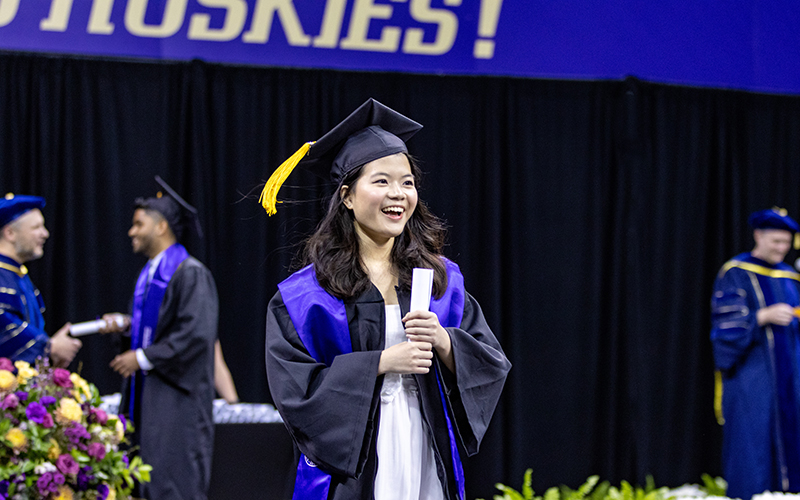
It’s not necessary for Washington’s brightest students to leave the Pacific Northwest to obtain one of the finest computer science or computer engineering educations in the nation — an education that will set them on the path to economic opportunity and high-impact careers.
The Allen School is ranked among the top programs alongside the likes of Stanford, MIT, UC Berkeley, Carnegie Mellon, Cornell, Princeton, Texas, Illinois, and Wisconsin. Every year, students who are admitted to these and other fine institutions choose to attend the University of Washington to pursue their bachelor’s degree in computing. These students find that the Allen School offers an unbeatable combination: outstanding students, small classes, and a world-class faculty committed to providing a very special undergraduate experience in which research and education are seamlessly intertwined. Here, students are brought to the forefront of the field as partners in discovery.
We are able to fulfill our public commitment to educate Washington’s students for Washington’s innovation economy because of our supporters’ generosity.
Endowed Undergraduate Scholarships
Unless otherwise noted, the scholarships listed below are open only to students currently enrolled as Computer Science or Computer Engineering majors at the University of Washington.
Anderson Family Endowed Scholarship
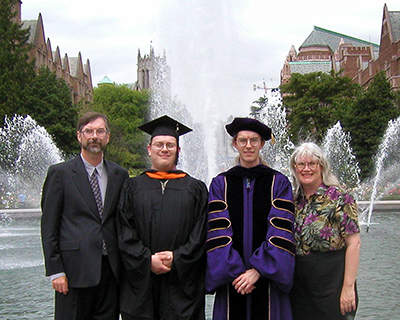
Corin Anderson attended the University of Washington from 1993 through 2003. He earned bachelor’s degrees in computer science and math, and a master’s and Ph.D. in computer science. As an undergraduate, he was joined at the UW by his brother, Casey, and his mother, Cathy, who also earned bachelor’s degrees in computer engineering and technical communications. And, again as Corin completed his Ph.D., Casey earned a master’s through the CSE Professional Master’s Program. Sharing the college experience with family started even before the UW for the Andersons. Corin, Casey, and Cathy all attended Highline Community College first and graduated with Associate in Arts degrees on the same night (and one day before Corin graduated from Foster High School in Tukwila, WA). Corin and Casey’s father, Craig, rounded out the Anderson family support network.
Corin always felt that the culture of the CSE department was one of its best features, and he did his best to help contribute to it. He was known for decorating his office, especially around the holidays, and for always having snacks on hand for visitors. Corin carried on these traditions after graduation when he joined Google in Mountain View, CA, in 2002.
The Anderson family understands that college can be an overwhelming experience. It may be an abrupt transition from being the top of one’s high school to one of many top students in a first-year class, or to switch from evening classes at a community college to a much larger campus. Corin is happy that he had the good fortune of sharing in much of his undergraduate experience with family, and he hopes other students will have a similar opportunity.
Eileen Bjorkman Endowed Scholarship in Computer Science & Engineering
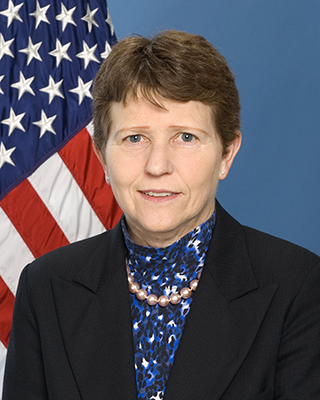
Eileen Bjorkman graduated from the University of Washington in 1979 with a bachelor’s degree in computer science. After working for a year in the private sector, she joined the Air Force and spent thirty years as an officer, retiring in 2010 as a colonel. During her career, the Air Force sent her to school many times, including a B.S. and M.S. in aeronautical engineering. She was also a flight test engineer at the USAF Test Pilot School. After retiring from the Air Force, she earned her Ph.D. in systems engineering. No matter how much education she received, she always believed that her first degree from the UW laid the foundation that allowed her to excel in her later academic and career pursuits. She established this scholarship to ensure that other young people can obtain an education that will open doors to a lifetime of opportunities. Eileen received the Paul G. Allen School Alumni Impact Award in 2018.
Burkhardt Family Endowed Scholarship
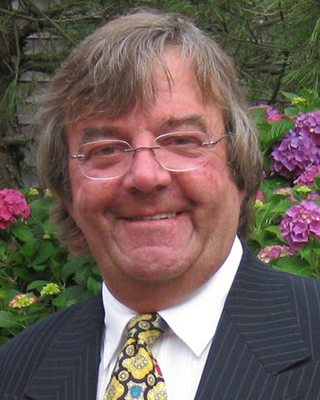
Ken Burkhardt earned his bachelor’s degree in physics from Cornell University and his master’s degree in computer science from Rutgers University. He graduated in 1975 with a Ph.D. in computer science from the University of Washington. Dr. Burkhardt spent eight years in academia as a faculty member at the UW and at Rutgers University. During this time, he was also Vice President of Systems at Intec, Inc., an early pioneer in the electronic weighing industry. He left academia to become the chief system architect in the Unisys workstation group. In 1983, together with two other cofounders, he started Dialogic Corporation, the market share leader in the call processing and automated telephone industries. Dr. Burkhardt and his partners grew the company to 1,400 employees and then sold it to Intel Corporation in July of 1999. In February of 2000, he was appointed Chairman and CEO of Aloha Networks, a startup in satellite Internet communications. He left Aloha Networks in 2004 to become President of Verbier Ventures, LLC, a consulting and investment management firm.
Dr. Burkhardt served on the boards of a number of public and private companies as well as the visiting committee of the College of Engineering. He is married with three children and four grandchildren and spends his spare time skiing, surfing, and biking. He is also one of the founders of the University of Washington Lacrosse Club.
John Colleran and Michelle Kastner Colleran Endowed Scholarship
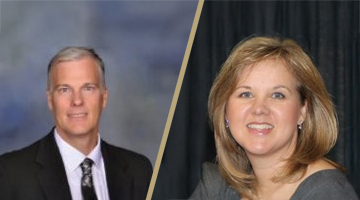
John Colleran and Michelle Kastner both attended the University of Washington. John received his B.S. degree in computer science in 1987. Michelle graduated with a B.S. degree in psychology with an emphasis in sports psychology in 1988. The two met at the UW in 1988. Michelle and John greatly enjoyed the UW college experience and feel they personally came away more well-rounded as a result of attending. They have strong feelings about the importance of a college education in a young person’s life. They believe college not only teaches you academics in the classroom, but also life skills outside of the classroom.
Both John and Michelle paid their own way to attend college and understand the struggles that go with being a full-time student while working and ultimately the need to pay back student loans. Michelle earned some local scholarships before attending and vividly remembers the relief it brought to get help with the costs of college.
John and Michelle attribute their career successes to hard work, lessons learned in college, and frankly, some good luck. They feel they have attained greater achievements and attained many life goals, thanks in large part to their time spent at the UW.
John’s professional career has been spent at Microsoft, one of the premier technology companies in the area. After college, Michelle held two high-level marketing positions in local companies and then went on to build her own marketing consulting firm, before “retiring” to raise their two children, Jessica and Joshua.
John, Michelle, and their children are active supporters of the UW and also root on the Dawgs at home football games and travel to bowl games.
They would like to encourage and help facilitate a college education for others who wish to
follow this path. To this end, they have established the John Colleran and Michelle Kastner
Colleran Endowed Scholarship at the UW.
David N. Cutler Endowed Scholarship
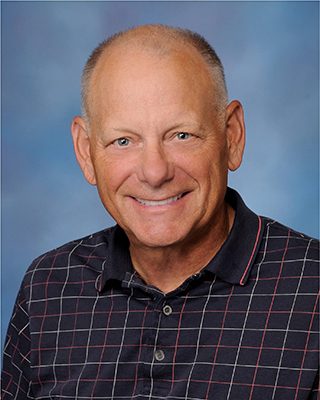
David N. Cutler joined Digital Equipment Corporation in 1971. His first operating system project was to build a real-time system called RSX-11M that ran on Digital’s PDP-11 16-bit series of minicomputers: a multitasking operating system that would run in 32 KB of memory with a hierarchical file system, application swapping, real-time scheduling, and a set of development utilities. His second project was to lead the development of VMS, the operating system for Digital’s 32-bit VAX-11 architecture; VAX/VMS was the mainstay of technical computing nationwide for a decade.
Cutler then moved to Seattle to found DECwest Engineering, where he built the MicroVAX1, Digital’s first VLSI computer, and VAX ELN, a real-time factory automation operating system. Subsequently, he designed Digital’s first RISC processor, PRISM, and its Mica operating system, which were never commercialized. In 1988, Cutler and his team left Digital to join Microsoft, where Cutler led the development of Windows NT, Microsoft’s first 32-bit operating system. The goals for Windows NT included portability, security, POSIX compliance, compatibility with three separate 16-bit operating systems (including multiprocessor support), extensibility, and the ease of internalization.
In March 2007, Cutler received the inaugural Microsoft Technical Recognition Award for Career Achievement, the company’s top individual recognition. He donated the prize to the Department of Computer Science & Engineering at UW. More than a dozen friends and colleagues, led by Gary Kimura and Rob Short, augmented Cutler’s gift as a tribute to him, creating the David N. Cutler Endowed Scholarship.
Denice Dee Denton Scholars in Computer Science & Engineering

This scholarship is named in memory of Denice D. Denton, dean of the University of Washington College of Engineering from 1996-2004.
Denton was the first female dean of engineering at a major research university in the United States. She was a pioneering leader who significantly advanced the state of research, teaching, mentoring and diversity in engineering and technology across the nation. A powerful and highly effective force for change, Denton was an inspiration and role model to countless engineers and scientists.
Her bold vision and decisive energy infused her colleagues with the courage to move forward in making the necessary changes in engineering and science. While dean of the College of Engineering, she co-founded the Center for Engineering Learning and Teaching, as well as a multi-institutional Center for Advancement of Engineering Education.
Dean Denton received many awards and honors, including the Presidential Young Investigator Award in Electrical Engineering from the National Science Foundation in 1986, the Presidential Award for Excellence in Science, Mathematics and Engineering Mentoring in 2004, and the Maria Mitchell Women in Science Award in 2006. The latter recognized her work in developing programs at universities to encourage women and girls to study science, technology, engineering and math. She was a fellow of the IEEE and American Association for the Advancement of Science.
Neil E. Eney Jr. Veteran’s Endowed Scholarship
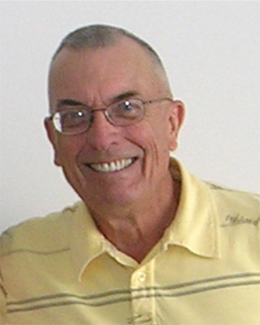
Neil was born in Seattle, Washington on February 21, 1938. He graduated from Lake Washington High School in 1956 and immediately enlisted in the Navy. His 20-year Naval career took him to bases in New England, Virginia, California, and Hawaii, where he met his wife, Page. He served on five different destroyers during his military career, which included three West-Pac cruises during the Vietnam War. His specialty was that of Sonarman. He moved from the enlisted class ranks to officer during his time in the service.
After retiring from the Navy in June of 1976, Neil returned to the Seattle area. With assistance from the Vietnam Era GI Bill, he attended the UW. He graduated cum laude in 1980, achieving a B.S. in business administration. At the University, the technical skills he acquired in the Navy led Neil to specialize in what was then a brand new field, business computing. Upon graduating, he went to work for Sundstrand Data Corporation, an avionics manufacturer famous for its “Black Boxes”. In 1987, he went to Boeing, where he worked as a system administrator in support of Boeing Phantom Works and other defense and space based projects. Neil retired from Boeing in 2005.

After retiring, Neil focused his time on playing golf as much as possible, enjoying time with his family, and visiting with his friends at the local Starbucks. In the last few years, if you were looking for Neil, he would be on the golf course, at Starbucks, tinkering in his garage, or volunteering his time to help non-profits maintain their computer systems. He was not afraid of embracing the most recent technological wonders.
Neil was a generous and loving man. His beautiful smile stayed with him even during the last year, which was very challenging for him as he valiantly fought his lung cancer diagnosis. Neil was an active member of his church, a proud veteran, an avid golfer, an adoring and beloved husband, and a proud father of his two children.
Kyril Faenov Endowed Scholarship
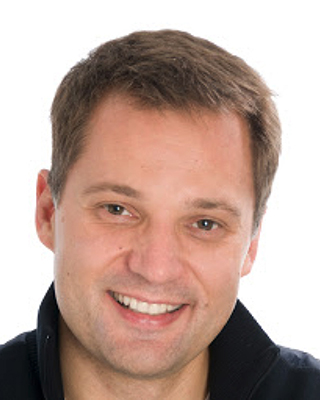
Kyril Faenov was an entrepreneur, technologist and executive with an 18 year track record of global impact in the high technology industry. Kyril’s aim was to build sustainable enterprises that delivered innovative, scalable solutions in the areas of scientific and technical computing, health and wellness, and education.
Kyril was a General Manager at Microsoft Corporation, leading the Technical Computing Group which encompassed Microsoft’s Parallel Computing Platform and Windows HPC Server. Kyril founded the High Performance Computing business unit in 2004 and led the development of the Windows HPC Server product and world-wide industry and academic partnerships. His prior contributions at Microsoft included leading the planning for Windows Server 2008, co-founding a distributed systems project in the office of the CTO, driving cross-company strategic initiatives as a technical advisor to the Platforms Group Vice President, and developing the Network Load Balancing scale-out technology in Windows 2000.
Kyril joined Microsoft in 1998 as the result of Microsoft’s acquisition of Valence Research, an Internet server clustering startup he co-founded with his colleague and mentor Bill Bain and grew to profitability by securing MSN, Microsoft.com and some of the world’s other largest web sites as its clients. He was a principal technical member of two other parallel systems startups, as well as a software consultant to Intel on a variety of embedded and performance simulation projects.
Kyril received his B.S. from the Rochester Institute of Technology and his M.S. from the Oregon Graduate Institute, concentrating in distributed systems and computational finance. He received an MBA in Technology Management from the University of Washington.
He grew up in Moscow, Russia, where he trained with the Olympic Reserve swim team and studied physics and mathematics. Before his untimely death in 2012 he resided in Seattle, Washington with his wife, Lauren Selig, and two daughters, Avery and Pasha Faenov.
For 12 years preceding his passing, Kyril had been active in Seattle entrepreneurship community as an angel investor and advisor to various early stage startups, and as a member of the Alliance of Angels Screening Committee, Social Venture Partners, and the advisory board of the UW Institute for Learning & Brain Sciences.
In his honor, Microsoft’s entry in the 2012 “Top500” HPC competition, an Azure cloud supercomputer, was named the “Faenov Cluster.” According to a press article at the time, “Microsoft morphs HPC efforts into ‘Big Compute'”:
Microsoft also set up a virtual cluster and ran the Linpack test on it again. It is called Faenov, in homage to Kyril Faenov, who used to lead Microsoft’s HPC efforts before he died in May 2012.
The Kyril Faenov Endowed Scholarship is a lasting tribute to this remarkable person. Learn more about Kyril’s life and achievements.
Dreama Frost Endowed Scholarship
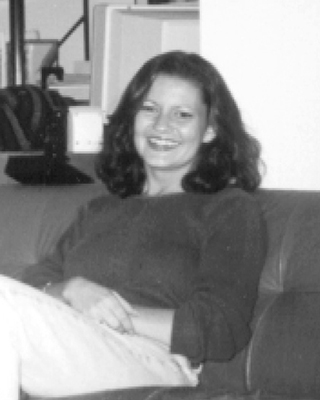
This endowed scholarship was established in 1999 to honor the memory of Dreama Frost. Dreama became the advisor for the Professional Master’s Program in the Department of Computer Science & Engineering in July 1998. In December, at the age of 28, she came down with a sudden illness and passed away.
Dreama grew up in the rugged but beautiful foothills of the Blue Ridge Mountains of Virginia. Gifted and energetic, from early on she pursued everything with great zeal and passion. This dominant characteristic of her nature permeated all facets of her life, from her kindness to others to her studies at school. Her gifted intellect was evident at an early age, and her passion for learning was encouraged by her teachers.
By the time Dreama reached high school, it was obvious she was intent on expanding her horizons through education, both as a person and beyond the environs of the Blue Ridge mountains. Her talents and achievements were recognized and encouraged and she was allowed to pass over her senior year and enroll in college. She embraced the challenge with typical fervor and performed admirably and in her unique characteristic style, completing both her senior year of high school and freshman year of college simultaneously. Dreama’s career as an undergraduate and graduate student was no less impressive. She completed a two-year master’s program in one year with a 3. 7 grade point average while working 30 hours a week, commuting one hour each director for every class.
Upon the conclusion of her graduate studies, Dreama found herself again in academe working as a consultant in higher education admissions, and in this she excelled. After a few short years of consulting, at the age of 25, Dreama was offered and accepted the position of Dean of Enrollment Management at Mount Vernon College in Washington, D.C. Her track record at Mt. Vernon was exceptional: she set stellar enrollment records almost every cycle. Two years later, she was offered, and accepted, a similar position at Chatham College in Pittsburgh, Pennsylvania. Again, through her leadership, enrollment records were set. Dreama’s final challenge was to leave the familiar and bravely explore a new region of the country, which brought her to the University of Washington.
The driving force behind all of her achievements was her engaging and dynamic personality, her boundless energy and enthusiasm, and admirable character. It was these aspects of her that saw her through the tremendous challenges of her early life, challenges that could easily break one’s spirit. This scholarship is representative of and testimony to her life: admirable qualities we as human beings strive to embody in our character and live through our actions. It represents recognition of ability and perseverance under challenging conditions to achieve a dream, the desire to better understand ourselves and the world around us through knowledge, the desire to know the joy of helping others realize their dreams. These qualities, among many others, were the essence of Dreama.
Glerum Family Endowed Scholarship
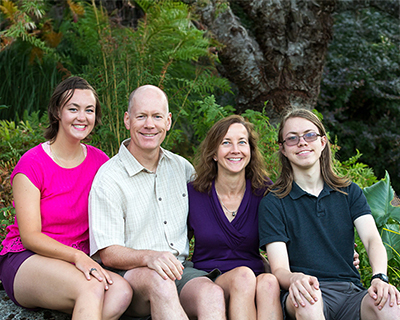
Melissa Glerum received her bachelor’s degree in computer science from Brown University, and Kirk Glerum received his bachelor’s degree in computer science from the University of Washington. Their education prepared them for highly successful careers at Microsoft, and they hope to make the same opportunity available to future generations of students.
Hellmut Golde Endowed Scholarship
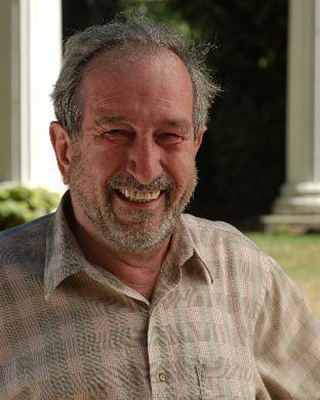
This scholarship is named in honor of Hellmut Golde, a founder of the Department of Computer Science and Engineering (CSE). Hellmut received his Ph.D. in electrical engineering from Stanford University in 1959 and was appointed to the UW Department of Electrical Engineering in 1960. During his 36-year career at UW, Golde was active in curriculum development, including logic design, automata theory and his popular course on compilers. He was very involved in university affairs and campus computing, spending four years as Vice Provost for Computing. Notably, Hellmut’s collaboration with five graduate students in the late 1970s to produce a Pascal compiler had a profound effect on the department. Licensed to Digital Equipment in an agreement that paid royalties, the compiler generated well over $1M in revenue for CSE.
Google Endowed Scholarship

The mission of Google is to organize the world’s information and make it universally accessible and useful. Google is recognized as the world’s largest search engine – an easy-to-use, free service that returns relevant results in a fraction of a second. The individuals, both alumni and friends, who funded this endowment value their own education, and the opportunity to support undergraduate and graduate students with resources to attain a degree in computer science & engineering was compelling.
Jim Gray Endowed Scholarship
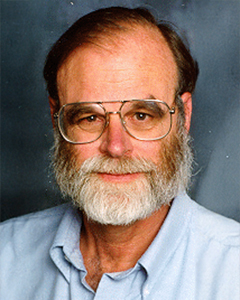
This endowed scholarship was created in honor of James A. Hewitt Jr., Senior Systems Engineer/Architect in the Department of Computer Science & Engineering at the University of Washington.
James was born in Lincoln, Nebraska, on March 8, 1974. He grew up in Dallesport, Washington, graduating from Lyle High School in 1992. Shortly after, he moved to Seattle to begin his college education and, later, his career at the UW. On August 9th, 2003, James passed away in an accident at the age of 29.
James was known to his family and friends for his warm, generous, and playful spirit. With boundless energy and a true appreciation for life, he continuously challenged himself, seeking out opportunities to enhance his life learning. His wide range of interests spanned from scuba diving to flying. James pursued a variety of activities that included world travel, motorcycle riding, bass guitar, coursework in Islamic studies, and the obtainment of his pilot’s license. He was also the Founder and CEO of TechWolf Networks Inc.
David & Cathy Habib Endowed Scholarship

David Habib received a B.S. degree in computer science from the University of Washington in 1986. After finishing his degree, he went to work for Microsoft as a software design engineer. During his 14-year career at Microsoft, he worked on Windows, applications and development tools. He was a technical development lead on the first two versions of the Microsoft Access database management system and also was a development lead and development manager in Visual Studio, working on graphic design tools for web and database development. After leaving Microsoft in 2000, David spent 12 years doing software consulting for nonprofits. In 2013, he joined the Salesforce Foundation, where he was a lead developer working on software for the nonprofit market.
Cathy Volta Habib received a B.S. degree in computer science from the UW in 1986. After finishing her degree, she went to work for Hewlett-Packard, where she worked as a software engineer in their test and measurement unit in Lake Stevens, Washington. She later worked at Microsoft Corporation as a software design engineer, where she was a member of the development team working on Microsoft Word for both the PC and Mac. Cathy left Microsoft in 1995 to raise their two children. Cathy served on the Bellevue Schools Foundation as a community advocate for educational programs and funding, and Eastside Pathways, a collective action nonprofit focused on improving educational outcomes for all children on the eastside.
David and Cathy are strong proponents of public education, and they want to make sure that the benefits of a great university education are available and attainable to all young people, especially those of underrepresented races or of limited financial means.
James Hewitt Endowed Scholarship
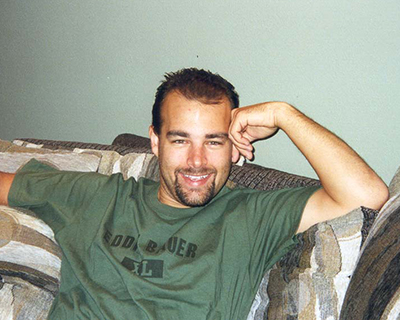
James was born in Lincoln, Nebraska on March 8, 1974. He grew up in Dallesport, Washington, graduating from Lyle High School in 1992. Shortly after, he moved to Seattle to begin his college education and, later, his career at the University of Washington. On August 9th, 2003, James passed away in an accident at the age of 29.
James was known to his family and friends for his warm, generous, and playful spirit. With boundless energy and a true appreciation for life, he continuously challenged himself, seeking out opportunities to enhance his life learning. His wide range of interests spanned from scuba diving to flying. In recent years, James pursued a variety of activities that included world travel, motorcycle riding, bass guitar, coursework in Islamic studies, and the obtainment of his pilot’s license. He was also the Founder and CEO of TechWolf Networks Inc.
The primary criterion for this award is academic merit. In addition, the student’s application essay should address the opportunities they pursue, both in and outside of school, to increase their own life learning.
InfoSpace Endowed Scholarship
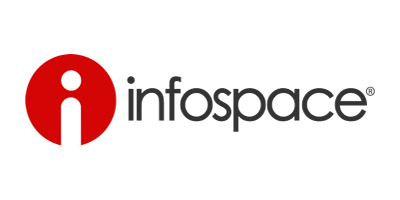
InfoSpace was a leading provider of Internet infrastructure services for consumers, merchants, and wireless devices. Naveen Jain founded the company in April 1996 with the vision of delivering real world information on the Internet–anytime, anywhere, and on any device. “Giving back” became a corporate ethic and a cultural value within the company. The InfoSpace Foundation’s mission was to provide the resources needed to make a positive difference in the communities where the company’s employees live and work.
Anu and Naveen Jain Endowed Scholarship in Business and Computer Science & Engineering

Naveen Jain was the founder of Intelius and InfoSpace. Both he and Anu strongly believe in giving back to the community and making a difference in people’s lives, and their hope is that this award will help attract top students to the UW and provide opportunities for students for a better future.
Gary Kildall Endowed Scholarship
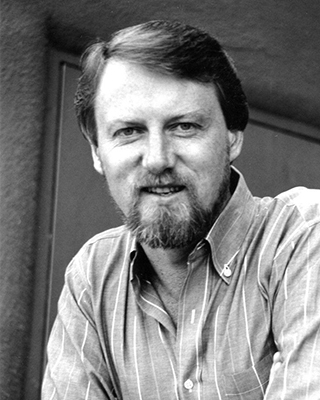
As a student at the University of Washington, Gary Kildall received three degrees: a bachelor’s degree in mathematics in 1967, a master’s degree in computer science in 1968, and a Ph.D. in computer science in 1972. He was hired as an assistant professor at the Naval Postgraduate School in Monterey, and later joined Intel Corporation to write programming tools for the Intel 4004 microprocessor.
A pioneer in the computer revolution, Gary developed CP/M, which became the dominant microcomputer operating system of the 1970s. He was one of the first people to recognize that even the early, simple microprocessors could support a complete minicomputer-style operating system, and he created an editor, assembler, linker, and loader, along with the first file system to use floppy disks as a general-purpose storage medium. As personal computers began to be used, he saw that their true potential would be in connectivity, so he developed extensions to CP/M that let computers share files and peripheral devices over a network.
Gary’s company, Digital Research, Inc., introduced operating systems with windowing capability, preemptive multitasking, and menu-driven user interfaces years before Microsoft developed Windows. He also created the first practical open-system architecture, which allowed operating systems and application programs to be independent of the specific machines on which they ran. A firm believer that life and work should be fun, Gary also developed an early computer-based arcade game as well as precursors to current interactive multimedia.
Gary passed away in 1994, at the age of 52. His daughter Kristin, established the Gary Kildall Endowed Scholarship in his honor in 1997.
Other resources about Gary’s extraordinary accomplishments:
Gary D. Kimura Family Endowed Scholarship
Both Gary D. Kimura and Christine N. Kimura are native Seattleites. They received their undergraduate and graduate degrees from the University of Washington. Gary was in the first class that received undergraduate computer science degrees from the UW in 1978. He continued to earn a master’s degree in 1982 and a Ph.D. in computer science in 1984. Afterwards, Gary worked at Digital Equipment Corporation and then Microsoft where he was an original member of the Windows NT Operating System design team. In 1999 Gary returned to the UW as an affiliate professor teaching operating system design classes. Christine received her B.S. in metallurgical engineering in 1980, and M.S. in materials science and engineering in 1998. She worked 21 years at Boeing in both the commercial and aerospace divisions before retiring in 2002. In establishing this fund in 2008, it was the wish of Gary and Christine that this scholarship provide financial resources to students just as Gary had received assistance for his undergraduate education. They hope the students who receive assistance from this fund flourish and leave as proud graduates of the UW.
Todd Laney Scholars Endowment

This endowment was established in 2009 by Todd Laney. Todd is a Seattle native who graduated from Garfield High School and then attended the University of Washington and studied computer science and engineering from 1983-1987. Todd believes everyone with a passion for computer science should have the opportunity to attend a great university like the UW. He believes a quality education will allow students to follow their passion for computer science and engineering later in life.
Leo Maddox Foundation Endowed Scholarship

Leo Maddox Schneider (7/7/2005 – 1/12/2019) of Seattle was his family’s sunshine, inspiration, and the love of their lives. Beloved by his mother, Sylvia Bolton, his father, Matt Schneider, and his grandparents, Margy and Stan Perl, Leo was their only child and grandchild and the center of their universe.
Leo was 13 at the time of his passing from injuries and eventual complications sustained in a tragic car accident. A gifted child, three years ahead of his grade level in math, well versed in Spanish and Bulgarian, Leo loved computer programming and Lego design. Leo was passionate about learning. Even at a young age, he was following his Mom’s advice, “if you can find something you love and are passionate about, make it your profession. It will bring fulfillment and a lot of happiness.” Leo took that to heart and decided early on to go about finding what he loved.
And “Leo loved computer science,” explained Bolton. “He and his friend Lennox shared a dream of attending a university that excelled in computer science so they could build their own company and make a difference in the world.” Leo, Lennox, and their good friend Judd would talk about everything under the sun and about their futures. Bolton continued, “Everyone knew Leo as having a big, sweet soul, and people just loved him. Leo was and will always be remembered as the smart, kind, and compassionate kid who was gifted at math and science, loved the outdoors, and was a friend to many. With so much life ahead of him.”
The Leo Maddox Foundation was created as a living legacy to Leo by his mom, Sylvia. The Foundation’s mission supports promising young students to achieve their academic potential in fulfilling their dreams. In 2020, the Foundation established the Leo Maddox Foundation Scholarship in Computer Science & Engineering. Learn more about the Leo Maddox Foundation Scholarships.
Microsoft Endowed Scholarship
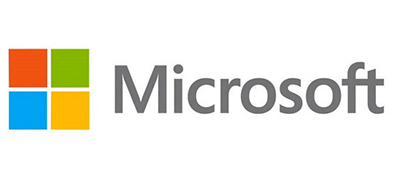
Microsoft’s $1 million commitment to the University of Washington in 1994 was the largest gift ever made by the Company. By designating the gift to the Department of Computer Science and Engineering, the Company made an important investment in the future of the software industry. According to Bill Gates III, “Institutions such as the University of Washington provide the software industry with the research and development talent we will need to continue our success. Microsoft has enjoyed a close working relationship with the University of Washington and will continue to look forward to a stronger relationship in the future.”
Jerre Noe Endowed Scholarship
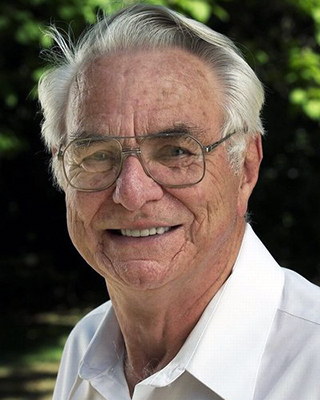
This scholarship is named in honor of Jerre Noe, the first chair of the Department of Computer Science & Engineering at the University of Washington. Jerre arrived at UW in 1968 and led the department for eight years. He continued as a faculty member and department leader in subsequent years and was actively involved in the life of the department as an Emeritus Professor. His career accomplishments include his groundbreaking work at Stanford Research Institute on the ERMA system, which in the 1950s laid the foundation for all of modern electronic banking.
On the evening of November 12, 2005, after a brief battle with mesothelioma (a rare and aggressive form of cancer), Jerre Noe passed away at the age of 82. Additional information on his full and active life can be found on the department’s memorial page.
This scholarship was established by Jim and Donna Gray.
Jim Gray (James Nicholas Gray) was born January 12, 1944, and was lost at sea off the northern California coast while sailing on January 28, 2007. Jim was one of the world’s most distinguished computer scientists. His numerous contributions to the field of database systems were recognized with membership in the National Academy of Sciences, the National Academy of Engineering, the American Academy of Arts and Sciences, and the European Academy of Science. He was also a fellow of both the ACM and IEEE. In 1999, Jim was awarded the ACM A.M. Turing Award for his seminal contributions to our understanding of the concept of transactions and their implementation.
Jim’s pioneering research on transactions at IBM in the 1970s provides the foundation for today’s world of electronic commerce. Every time someone uses an A TM, reserves a seat on an airplane, or purchases an item on the web, they are relying on the mechanisms that Jim first developed. These techniques ensure that the “right” thing always happens – even in the presence of software and hardware failures. While they seem second nature to us today, when Jim conceived of them, they required very deep insight into the complexities of concurrently executing queries against a shared database system.
Jim received his B.S. and Ph.D. degrees from the University of California, Berkeley in 1966 and
1969. Soon after receiving his Ph.D., he joined the IBM San Jose Research Laboratory, where he helped
lead the design and development of System R, one of the first database systems to use the relational data model. In 1988, System R (along with the INGRES project at Berkeley) was honored with the ACM Software Systems Award for pioneering the development of relational database systems. It was as part of the System R project that Jim first developed the notion of what it meant for transactions to be
serializable, the connection between serializability and database consistency, and how a simple protocol
known as “two phase” locking could be used to ensure that two or more transactions are serializable with respect to each other without having to understand the semantics of the transactions.
Between leaving IBM in 1980 and joining Microsoft in 1995, Jim worked for Tandem on the parallel relational database system Non-Stop SQL from 1980 to 1990 and at Digital Equipment Corporation from 1990 to 1995. Over the course of his career, Jim made numerous technical contributions beyond his work on transactions, including database system architectures and algorithms, fault tolerance, input/output architectures, parallel database systems, database system performance evaluation and benchmarking, multidimensional data analysis, and eScience, including the TerraServer and the Sloan Digital Sky Survey projects. When he disappeared in 2007, he held the title of Technical Fellow at Microsoft.
Jim made substantial service contributions to the nation and the computer science community as a member of numerous technical advisory boards and committees. He was a member of the Computer Science and Telecommunications Board from 1990 to 1999, the Presidential Advisory Committee on Next Generation Internet, High Performance Computing, and Information Technology (PITAC) from 1997 to 2001, the NSF CISE Advisory Committee from 2002 to 2004, and a Trustee of the VLDB Endowment from 1994 to 1999. Over the course of his career, he also mentored dozens of junior colleagues in both industry and academia, greatly influencing their careers.
Pedrizetti Family Endowed Scholarship
Ray and Louise Pedrizetti both grew up in the Pacific Northwest and greatly benefited from time spent at the University of Washington. As a family, they encourage and support a passion for learning and believe it is a key to a rewarding life. This scholarship was created to provide a long-term legacy of giving so that other students have the opportunity of receiving a higher education and therefore benefiting from the rewards it provides. Ray began his higher education at Bellevue Community College and transferred to the UW. He earned a B.S. in electrical engineering in 1981. His first job after graduation was at Digital Research Inc. Later, he joined Microsoft, managing many operating systems development teams during his career. He retired from the company in 2004. Louise attended the UW and Shoreline Community College, where she graduated as a dental hygienist.
RealNetworks Endowed Scholarship

RealNetworks, Inc. is the leading creator of digital media services and software, including Rhapsody, RealPlayer® 10, and casual PC and mobile games. Broadcasters, network operators, media companies and enterprises use RealNetworks’ products and services to create and deliver digital media to PCs, mobile phones, and consumer electronics devices.
In 2006, RealNetworks acquired WiderThan, Inc. WiderThan is a leading provider of integrated mobile entertainment solutions for wireless carriers, with applications, content, and services that enable wireless carriers to provide a broad range of mobile entertainment, such as ring-back tones, music-on-demand, mobile games, ring-tons, messaging and information services, to their subscribers. WiderThan currently provides mobile entertainment solutions to more than 50 wireless carriers in more than 25 countries, including SK Telecom in Korea, Cingular Wireless, Spring Nextel, T-Mobile USA, and Verizon Wireless in the U.S., Bharti Airtel in India, and Globe Telecom in the Philippines.
Working with the University of Washington, it is our hope to provide worthy undergraduate students in need of financial assistance an opportunity to advance their education in computer science and engineering.
Su Family Scholarship
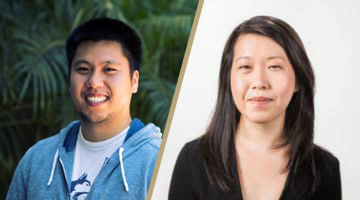
This endowment, established by the Su Family, is to provide merit-based scholarships for undergraduates in the UW Paul G. Allen School of Computer Science & Engineering. Siblings Sara Su and Jonathan Su attended Bellevue public schools and UW, where they were recipients of Allen School scholarships during their undergraduate careers. This endowment recognizes the critical role the Allen School played in both Sara’s and Jonathan’s academic and professional careers and is an opportunity for the Su Family to give back to, connect with, and support eager, motivated, and high-achieving Allen School students in their educational pursuits.
Sara entered the UW in 1998 and completed a B.S. in computer engineering in 2002, partially supported by the UW Boeing Scholarship in CSE. At the UW, Sara conducted undergraduate research with Professor Richard Anderson, held internships at Microsoft Research Asia, Adobe, and Cray, and was involved in ACM and ACM-W. She continued to complete a Ph.D. in computer science at MIT as an NSF Graduate Research Fellow. After two years teaching and conducting research at Tufts as a Visiting Assistant Professor, Sara moved the Bay Area to work for Google.
Seeing the fun Sara had as a UW student, and the great opportunities her education created for her, Jonathan followed Sara’s path and enrolled in computer science and engineering as part of the inaugural High School Direct Admission class in 2002. While at the UW, he worked with Professor Richard Anderson on research in Educational Technology, supported in part by a departmental scholarship from Microsoft, leading to a research internship at Microsoft Research Asia in Beijing, China. It was here that Jonathan discovered his interest for computer graphics, eventually leading him to pursue a Ph.D. in the field at Stanford University. After completing his doctorate, Jonathan worked at Intel Labs as a Research Scientist before starting PhiSix Fashion Labs, a company at the intersection of apparel, computer graphics, and e-commerce, which was acquired by eBay in 2014.
Tock Family Endowed Scholarship
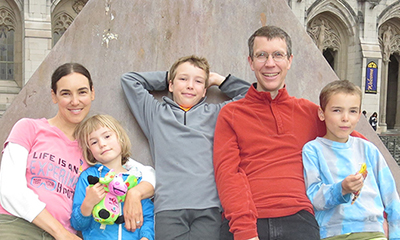
Theron Tock entered the University of Washington in 1984, joined the Department of Computer Science in 1987, and graduated in 1990. He worked for several years in Boston, attended graduate school at the University of Illinois in Urbana-Champaign, moved to the San Francisco Bay Area to work for Sun Microsystems, and then joined a startup focused on streamlining healthcare back-office operations using the internet. The success of that company gave Theron the independence to co-found a company right at the collapse of the Internet Bubble in 2000. After a year of working in the garage, the startup took off and went on to be quite successful.
Kalee Tock entered Harvard in 1991 and graduated in 1995 with a degree in chemistry. She spent one year teaching in Italy and then attended graduate school at Stanford. Kalee switched her interests from chemistry to education, receiving graduate degrees in both programs, and then joined Stanford as a researcher at the Educational Program for Gifted Youth.
Theron started young at the UW in the Early Entrance Program, which accelerates middle school students for early admission to the University. Theron’s academic performance at the University was at first unimpressive, and at the time he applied to computer science, he was quite concerned whether he was qualified enough to be admitted. Theron feels very fortunate that he was accepted as the training he received was key in Theron’s later life. It was clearly a good move on the department’s part, as Theron excelled in his computer science classes (the maturity of being 16 helped tremendously), and he and his wife were able to help out the department in return by establishing this scholarship fund.
Students with top academic records by traditional standards will have little problem finding a school where they can receive a good education. Scholarships for those types of students benefit the university the most, as the university will likely achieve more status from educating top students. In contrast, Theron and Kalee’s goal is to create a scholarship that benefits individual students the most, by allowing “on the edge” students a chance to receive an education that might otherwise be out of their reach – especially if, as in Theron’s case, such students have non-traditional educational backgrounds and could excel if given the chance. Theron and Kalee’s hope is that enabling such students to attend the UW will have a large positive impact upon their lives.
Alfred C. Weaver Endowed Scholarship
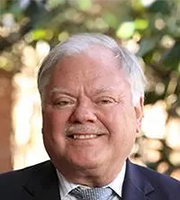
Drs. Weaver and Gillett met as graduate students at the University of Illinois while getting their Ph.D. degrees in computer science. They became best friends, and that close friendship lasted throughout their lives. This scholarship is named to honor Dr. Weaver in recognition of that deep friendship and his significant contribution to the professional community and the personal lives of those close to him.
Dr. Alfred C. Weaver received his B.S. in engineering science from the University of Tennessee in 1971, his M.S. in computer science from the University of Illinois in 1973, and his Ph.D. in computer science from the University of Illinois in 1976.
Dr. Weaver taught computer science at the University of Virginia. During his tenure at UVA, he was Chairman of the Department, Director of the Computer Science Corporate Partners Program, and served on more than 30 major committees, chairing most of them. Dr. Weaver taught more than 20 different courses within the department and directed the research of 9 Ph.D. dissertations, 27 master’s theses, and 29 master’s projects. Over his professional career, Dr. Weaver received more than 100 governmental/industrial grants, produced 12 books or chapters of books, produced more than 20 journal publications, more than 100 conference publications, and more than 75 technical reports. He was an invited speaker at dozens of meetings and gave more than 40 tutorials. He gave dozens of ACM national lectures and was on the editorial board of many major technical journals. He was a member of Phi Eta Sigma, Tau Beta Pi, Phi Kappa Phi, Sigma Xi, ACM, and a fellow of IEEE. He held patents and copyrights and founded several companies. Besides his primary professorship at UVA, Dr. Weaver graced many other organizations with his impressive capabilities, including the NASA Johnson Space Center, the Department of Computer Engineering, Lund University, Lund, Sweden, and the Technical University of Denmark, Lyngby, Denmark.
Dr. Weaver shares his passion and compassion with all who come within his sphere. He mentors undergraduate and graduate students with wisdom, compassion and care, sharing his insight, intellect and creativity while always encouraging the development of these properties in them. He gives his time and effort unflinchingly to the professional and academic communities, enhancing the knowledge, professionalism and humanity present in each endeavor. And he shares his soul with his family and friends.
For any undergraduate starting out their career, there is no better personal or professional life to attempt to emulate than that of Alfred C. Weaver. This scholarship is dedicated to this incredible person, a fantastic computer scientist, husband, father, and friend.
Dr. Will Gillett received his A.A. in mathematics from Orange Coast College in 1965, his B.A. in mathematics from the University of California in 1967, his M.A. from the University of California in 1968, and his Ph.D. in computer science from the University of Illinois in 1977.
Dr. Gillett was a professor of computer science at Washington University in St. Louis for 24 years. During his tenure there, he was the Department Assistant Chairman, Director of the Undergraduate Program, Director of Technical Computing, and Director of the Laboratory for Computational Science. He was twice Speaker of the Faculty Assembly. His dedication to undergraduate and graduate education was a driving force in his career.
Dr. Gillett had numerous publications in both the biological and computer science fields, received several grants in the educational and biological areas, and authored several textbooks. He was a member of Tau Beta Pi, Alpha Gamma Sigma, ACM, and the Orange Coast College Hall of Fame.
Teaching was always his passion, having taught approximately 15 courses over his career to thousands of students. For 20 years, he was the faculty advisor to the Student Chapter of the ACM. He received the Professor of the Year Award along with numerous other teaching accolades.
Besides his primary professorship at Washington University, he consulted with such firms as the Computer Services Corporation, Nishi Shinjuku, Tokyo, Japan, the RAND Corporation, Santa Monica, California, the Ingvar Schousboe Consulting Engineers, Urbana, Illinois, and the Office of the Assistant Secretary of Defense, Washington, D. C. He was a Visiting Professor of Medicine at the University of Washington as well as the Head of the Bioinformatics Group in the Genome Center in the Medical School. In 2001, Dr. Gillett retired from Washington University and moved to Seattle to become a research scientist in the Genome Center at the UW.
During Dr. Gillett’s undergraduate years, he received a number of scholarships without which he might not have been able to complete his undergraduate education. He supported scholarships at several institutions, returning a many-fold amplification of what he received to the academic community. It was his hope that recipients of this endowed scholarship understand the nature of the gift they have been given and ponder their relationship to future generations of students.
Wisniewski Endowed Scholarship
John Wisniewski graduated from the University of Washington in June 1973 with a double major in psychology and mathematics (numerical analysis). He and Jo-Anne married one week after graduation.
John continued his education by obtaining his master’s degree in computer science from Washington State University in 1975. Shortly after graduation, he worked for the Department of Defense in Fort Meade, Maryland, until he went to work for Sandia Labs in New Mexico in November 1976. In the summer of 1978, he went back to school at the University of Illinois to complete a Ph.D. in computer science/applied mathematics, which he finished in 1980. He then returned to Sandia Labs in New Mexico until 1989, when he moved his family to Oregon to work for Mentor Graphics.
In the meantime, his pride and joy and only child, Jonathan, was born. He loved being a father and was proud of both his wife and son for all their accomplishments. He became an expert veterinary assistant for his wife, not to mention an expert stall cleaner!
John began working for Intel in 1992. In four short years, he had a major impact on both individuals and projects. In March 1997, he was diagnosed with pancreatic cancer and died at home five months later.
John loved teaching as well as learning and acted as a mentor for many young people. He was known for his ability to problem-solve even before the problem could be recognized by those around him. He gave quietly of himself throughout his life. His steadfast support of his family and his embodiment of a successful personal and work ethic provided inspiration to everyone he interacted with. His positive outlook on life brought out the best in people. Watching others obtain the goals they set for themselves was one of his greatest pleasures.
Yamasaki Endowed Scholarship
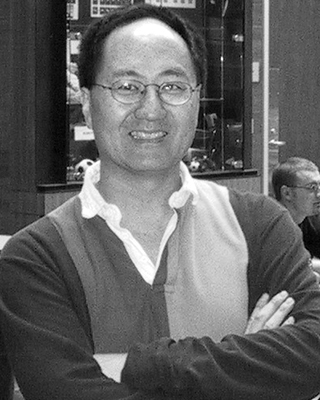
Brian Yamasaki came to the University of Washington as an undergraduate in the early 1980’s with the intention of pursuing a degree in business. After a short while, he became captivated by the vitality and intelligence of the faculty and students on campus. He took a Computer Science course out of curiosity and found he just couldn’t stop. He had been bit with the “technology bug.” Brian cites the intelligence of the students and instructors in Computer Science & Engineering as inspiration for him to work twice as hard to achieve his full potential. In 1986, he graduated with two bachelors degrees, one in Computer Science and one in Business Administration.
Brian Yamasaki strongly believes that the UW is at the heart of innovation and academic excellence in the Pacific Northwest. He also understands that at the core of every great University are the students that will set standards, challenge conventions, and ultimately contribute to society. Brian hopes this scholarship will help attract and nurture the best and brightest students to study methods, ask hard questions, create new solutions, and become the next great leaders in technology, whether in academia or industry. Brian enjoys his many connections and conversations with undergraduates as they journey through their education.
This scholarship will be awarded to entering first-year students or entering transfer students in the Department of Computer Science & Engineering at the University of Washington. Award amounts vary. Selection is based on demonstrated financial need, as determined by the Office of Student Financial Aid.
How it works
At the Allen School, undergraduate scholarships are endowed at various levels. The “default” is $250,000, which provides a students with an annual award of $10,000. The principal is invested in UW’s Consolidated Endowment Fund, which has consistently performed in the top quartile of endowments nationally. Roughly 4% is available for expenditure every year; additional gains are re-invested to keep pace with inflation. However, we have a number of smaller scholarship endowments, which are either awarded to students with lesser financial need, or pooled to provide greater levels of support.
Interested in learning more?
Contact Ed Lazowska, Professor, and Bill & Melinda Gates Chair emeritus, in the Paul G. Allen School, lazowska (at) cs.washington.edu, or Marzette Mondin, Senior Director of Advancement in the Paul G. Allen School, marz (at) uw.edu.
Lifetime endowment gifts of $25,000 and above are permanently recognized on the Endowment Wall in the Allen Center atrium.
Named funds are available for gifts of $50,000 and above. Appropriate recognition, designed in consultation with each donor, is part of each gift that creates a named fund.
